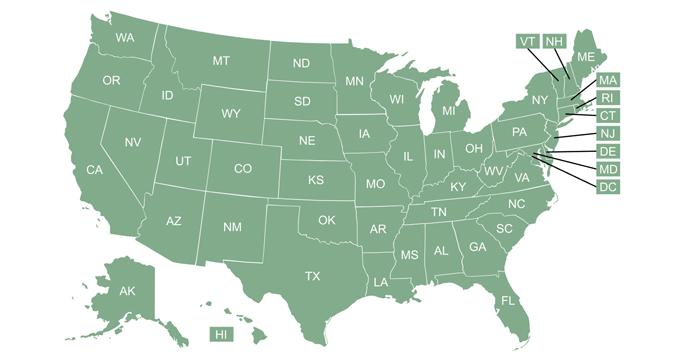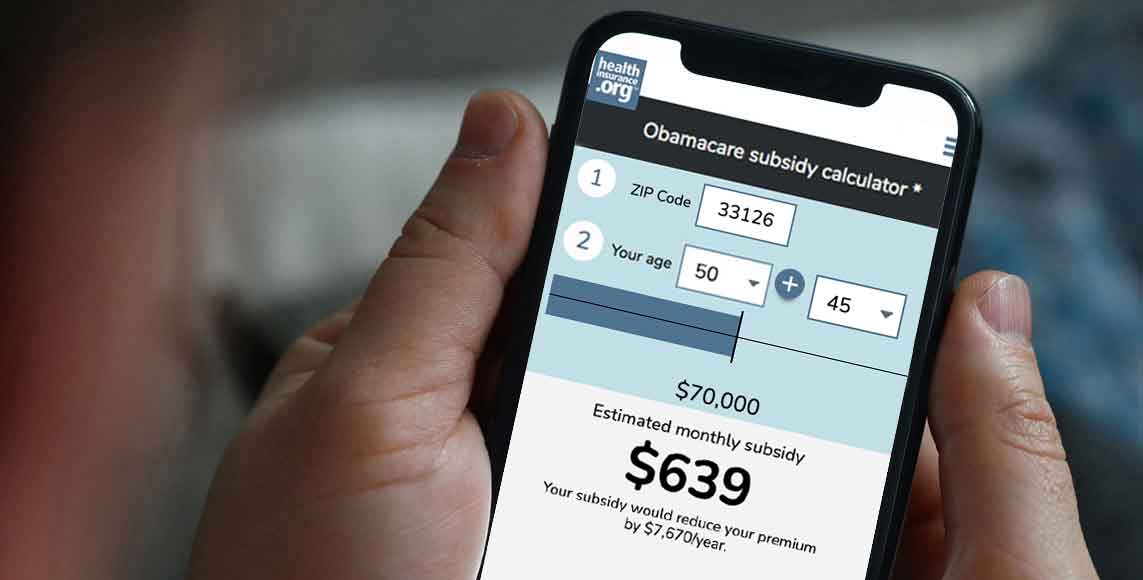
Key takeaways
- Most enrollments completed during open enrollment will take effect January 1. But in nearly every state, there are also February 1 effective dates, and a few states also have March effective dates available during open enrollment.
- If you’re enrolling as a result of a qualifying event, the effective date rules vary depending on the qualifying event.
- If you enroll off-exchange, the same effective date rules are generally followed. Non-ACA-compliant coverage can be purchased with an immediate effective date, but medical underwriting will generally be used for these plans.
If I enroll in the exchanges, will that coverage take effect immediately? What's the earliest my coverage will take effect after I complete the enrollment process?
In most cases, your health insurance coverage will not take effect immediately. There are general effective date rules that apply each year during open enrollment and during special enrollment periods triggered by qualifying events, which are addressed below.
Open enrollment
Open enrollment begins November 1 and continues through at least January 15 in nearly every state (only Idaho opted for a December deadline during the open enrollment period for 2022 coverage).
In most states, enrollments completed by December 15 will have a January 1 effective date, and enrollments completed between December 16 and January 15 will have a February 1 effective date.
But there are several state-run exchanges that allow enrollments to be completed as late as December 31 and still have a January 1 effective date. And there are a handful of state-run exchanges that have open enrollment deadlines as late as January 31; for some of them, people who enroll in the latter part of January will have coverage effective March 1.
In addition, if any insurers exit the market or terminate certain plans (replacing PPOs with HMOs, for example) at the end of the year, the people enrolled in those plans will be eligible for special enrollment periods. The special enrollment period, in that case, will run for 60 days before and 60 days after the loss of coverage.

Thanks to the American Rescue Plan, premium subsidies are larger and available to more consumers.
People in this situation who pick a replacement plan before the end of December will have coverage effective January 1 (even if they enrolled after December 15). If they pick a replacement plan in the first 60 days of the new year, their new plan will likely take effect the month after the enrollment is completed. Prior to 2022, in most states, the enrollment in that situation had to be completed by the 15th of the month in order to have coverage as of the first of the following month. But that’s no longer the case in states that use HealthCare.gov as of 2022.
Special enrollment periods
Outside of open enrollment (ie, if you’re enrolling due to a qualifying event), the effective date rules are different as of 2022. In previous years, in most states and for most qualifying events, an application submitted by the 15th of the month would have coverage effective the first of the following month. And an application submitted in the second half of the month would have had coverage effective the first of the second following month (so for example, an application submitted on July 20 would have had coverage September 1).
But that’s changed as of 2022 in states that use HealthCare.gov. The 18 state-run exchanges have the option to switch to the approach HealthCare.gov is using, or to continue with their own effective date rules. Most of the state-run exchanges have historically had a 15th-of-the-month deadline, but the exchanges in Massachusetts and Rhode Island have always allowed people to enroll as late as the 23rd of the month and still have a first-of-the-following month effective date
In the majority of the states, enrollments completed due to a qualifying event can have coverage the first of the following month as of 2022, regardless of the date that the application is completed. So in the July 20 example above, coverage would be effective August 1 (or still September 1, if the enrollee requests that).
Qualifying events with different effective date rules, even in state-run exchanges
As noted above, most special enrollment period applications have first-of-the-following-month effective dates in most states as of 2022. But the state-run exchanges can set their own rules for this. However, there are some qualifying events that have their own effective date rules, regardless of the state:
- If you get married, you’re eligible to get coverage effective the first of the following month, regardless of how late in the month you enroll.
- If you have a baby, adopt a child, or receive a court order for medical child support, the coverage can be backdated to the date of the birth, adoption, or court order.
- Loss of other coverage is a qualifying event that also allows for different effective date rules — if you enroll before your old plan ends. You can enroll up until the day your old plan ends and your new plan will take effect the first of the following month — so you won’t have any gap in coverage, assuming your old plan ends on the last day of the month.
A few points regarding loss of other coverage: It’s important here to note that your qualifying event date is the last day your old plan is in effect, NOT the first day that you would no longer have coverage (since the new plan will take effect the first of the month following the date of the qualifying event).
If your old plan ends mid-month, you will have a gap in coverage until the start of the following month, since individual market plans can only start on the first of the month unless the coverage is for a newborn or newly adopted child. You could consider a short-term health insurance plan for the latter part of the month that your coverage ends. Or if COBRA is an option, you could retroactively elect COBRA if a medical need were to arise before the new plan takes effect.
If you wait and enroll during the 60 days after your old plan ended, your effective date could be the first of the second following month if you’re in a state that still has a 15th-of-the-month deadline and you sign up after the 15th.
Off-exchange coverage
Outside the exchanges, effective dates generally follow the same rules as inside the exchanges. However, some insurers in some states opt to extend the enrollment deadline to December 31 for coverage effective January 1, if the person is applying outside the exchange during open enrollment.
If you’re enrolling in a non-ACA-compliant plan (like a short-term health plan), coverage can be effective as soon as the day after you enroll, but the insurer can use medical underwriting to determine your eligibility for coverage.
Louise Norris is an individual health insurance broker who has been writing about health insurance and health reform since 2006. She has written dozens of opinions and educational pieces about the Affordable Care Act for healthinsurance.org.








